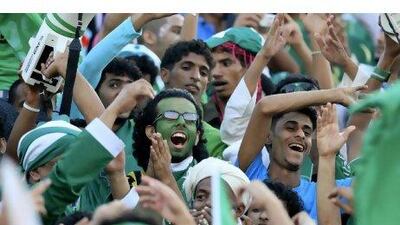SANA'A //Yemen may not have won the Gulf Cup tournament it hosted, but the country is claiming a "political and moral win' for its management of the eight-nation competition that ended on Sunday.
"The tournament went off without any security incident. Our security plan, which was supervised by the president, was implemented strictly," said Mutahar Rashad al-Masri, the country's minister of interior, at a press conference on the closing day.
The tournament opened last month in a country plagued by security challenges, including an insurgency in the north, a growing separatist movement in the south, as well as reports of resurgent wing of al Qa'eda.
The government of Yemen, one of the region's poorest countries, launched an unprecedented operation involving more than 30,000 soldiers to ensure the tournament's security. Dozens of checkpoints were set up across the country's capital city, Aden, and security forces established three rings of security around the city. Police were deployed at all the port city's main thoroughfares, and military helicopters were seen hovering over the stadiums during almost all the matches.
Ali Abdullah Saleh, the president of Yemen, thanked the military for its role in securing the event, and said Yemen had achieved a "political and moral win" by hosting a smoothly run event.
Mohammed Saeed, a 30-year-old Yemeni man, said the country proved it was competent to host such big events.
"Yemenis have forgotten their division and organised one of the best Gulf Cup tournaments. This is a pride to Yemen and not to the government only," he said.
Kuwait won the tournament with a 1-0 extra-time victory over Saudi Arabia. The tournament also included teams from the UAE, Bahrain, Oman, Qatar and Iraq.
The southern separatist movement had demanded several months ago that participating countries boycott the competition. It threatened to stage a massive march to Aden to stop the event, which it said would lend support to the government. But later, the movement said it welcomed the arrival of the Gulf nations.
"Strict security measures played an important role in running the tournament without security problems. But the southern movement reconsidered their plans in order to gain the sympathy of the Gulf people," said Ahmed al Zurqah, an independent analyst and writer.
Mr al Zurqah said about 25 per cent of the people at the tournament were military and intelligence personnel, brought to control any outbreak of violence, and to act as fans. He said security concerns were exaggerated.
"Security concerns were overblown and I think the government wanted to reposition the army by deploying thousands of troops to the restive south to face the growing separatist movement," said Mr al Zurqah.
In 1990, a union between the Marxist-led south and tribal-dominated north was reached. But the deal between the People's General Congress and the Yemeni Socialist Party fell apart, and a political crisis developed, which led to civil war in 1994. The socialists were crushed by the army of Saleh, who ruled North Yemen from 1978 to 1990. Since the civil war, there has been a growing sense of dissatisfaction in the southern provinces but it was only four years ago that a separatist movement started gaining ground.
Dozens of people, protesting economic and political marginalisation, have been killed.
But the unprecedented presence of fans, mainly women, in the stadiums has been considered one of the remarkable features of the tournament.
Mr al Zurqah said that the success of the event showed that Yemen is capable if there is a political will.
"The big turnout of people at the stadiums is a good signal that people are eager to joy and success. The government can achieve something when it is backed by the people and success can be attained if there is a political will," he said.
Fears of violence at the tournament had to be taken seriously, given that sporting events have been targeted in the past.
Togo pulled out of the African Cup of Nations in January after its team bus was attacked by gunmen in Angola two days before the start of the tournament. Last year, gunmen in Pakistan killed six policemen and a van driver when they attacked a bus carrying Sri Lankan cricketers. Several Sri Lankan cricketers were injured in the attack, which resulted in Pakistan being dropped as co-host of the 2011 World Cup, and barred from hosting any international cricket.
The next Gulf Cup, in 2013, will be held in Basra, Iraq.
* With additional reporting from The Associated Press

